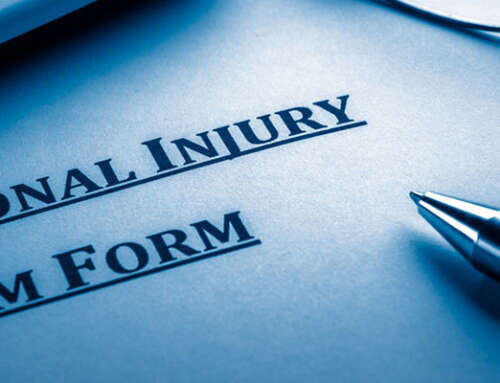The claimant’s details have been changed but this is indeed a true case
Jason Claridge, personal injury solicitor and director at Ward & Rider Solicitors, recently acted for Mr Z. Mr Z was injured whilst riding his motorcycle. He had been visiting a friend who lived on a newly constructed housing estate.
Mr Z was riding a low slung motorcycle which came into contact with a feature in the road. The defendants had advised that the road was safe for people to use but what had happened was they had not yet tarmacked the road properly and the feature was effectively a feature to attempt to stop people from speeding. As a result, it formed an obstruction and our argument was simply it was too high to allow individuals to safely navigate the road, particularly cyclists and motorcyclists. The feature tended to stop people from speeding but in fact it stood too proud on the rest of the surface.
Mr Z had been leaving his friends property when his motorcycle had to go over this feature and unbeknown to Mr Z, the feature damaged the oil tank of his motorcycle.
As a consequence of the oil leaking profusely, it came into contact with the back wheel of the motorcycle which caused the claimant to lose control of the motorcycle. He fell to his side and the motorcycles weight impacted upon his left knee. This caused his knee to dislocate and for him to suffer a rupture to his MCL and potentially rupture his ACL.
After the accident he attended his local hospital and the orthopaedic surgeons operated on him to stabilise the knee (which included the repair of the ACL rupture).
Mr Z had been recommended to us by one of his clients. We pursued the claim on the basis that the feature was a hazard to the road users. Liability was disputed. They advised Mr Z could and should have seen the hazard and therefore avoided it. His argument was, in order to use the road, he had no option other than to go over this feature.
We obtained a report form an orthopaedic surgeon. That surgeon advised that Mr Z had indeed dislocated his knee and ruptured his MCL. He wanted MRI scans taken of his knee because of Mr Z’s continuing problems and in particular to see whether the ACL had also been ruptured but not repaired.
Mr Z sought medical treatment for the continuing problem with his knee. In the meanwhile, he instructed us to proceed with his case.
Due to the complicated arguments and the fact that there were two potential defendants (the first being the individuals who owned the site who had responsibility of the site and the second being the individuals who were responsible for the ground works in preparing the road), we instructed a barrister.
Due to the Covid-19 pandemic, the barrister was instructed to hold the conference by video conference. At this we discussed frankly the approach to take. The barrister warned Mr Z that although he felt he would establish liability, there would be a strong argument regarding him being partially to blame for this accident, which we refer to as contributory negligence.
The barrister explained to Mr Z that in his view, the level of contributory negligence could range from 25% to 50%. Certain judges would not find in his favour at all but we felt the prospect of that happening was somewhat remote.
The barrister drafted the particulars of claim and the schedule of financial losses. At that point the schedule of financial losses included past travelling and treatment costs and included past help and assistance claim and the impact upon his business as he had employed someone to cover for him in the initial months after the accident because he was not physically mobile.
We also claimed for the future losses. This is all subject to the medical evidence but we argued that Mr Z, in all likelihood, would require surgery on his knee and would require help and assistance with heavier domestic activities. Also, he could potentially lose the last 5 years of his career due to his increasing incapacity arising from his knee injury.
The orthopaedic surgeon reported again after Mr Z had the MRI scan. This was carried out privately. Mr Z had continuing problems but the MRI scan did not show any fundamental structural damage to the knee. What the orthopaedic surgeon concluded was that he had not in fact ruptured his ACL but he had suffered a substantial soft tissue injury to his ACL. He had certainly ruptured his MCL which had been repaired appropriately and the knee was going to give him ongoing pain. What was a complicated factor was that Mr Z had a naturally thinning ACL which was unrelated to this accident although it was felt that was not the cause of his ongoing pain but would potentially impact upon him later in life, even if the accident had not occurred.
We argued the point regarding the issues on liability. Ultimately, we made them an offer of a 70/30 split and they made us a counter offer of a 60/40 split. However, we also moved onto the arguments about the potential value of the case.
There were a series of offers and counter offers which were made in relation to this matter. The orthopaedic surgeon felt, upon reviewing Mr Z’s position, that there was no need for further surgery on his knees as a result of this accident. Furthermore, upon reviewing the MRI scan, the claimant did not in fact face a situation where he would be unable to work for the last 5 years of his professional life and so the value of the claim had been reduced.
After a series of offers and counter offers, Mr Z was content to accept the sum of £70,000 (net) in respect of the entirety of his case. This represented on a full liability basis on the defendants offer of apportioning liability, £116,000. Mr Z advised Jason Claridge that he was going to use his compensation to invest in property.
We acted for Mr Z on a no win, no fee agreement. We act for claimants on a variety of cases in relation to personal injury claims arising from road traffic accidents, from public liability accidents (of which this is one), employers liability accidents and claims involving medical negligence.
Please contact Ward & Rider to discuss matters on 024 7655 5400 or email enquiries@wardrider.co.uk

